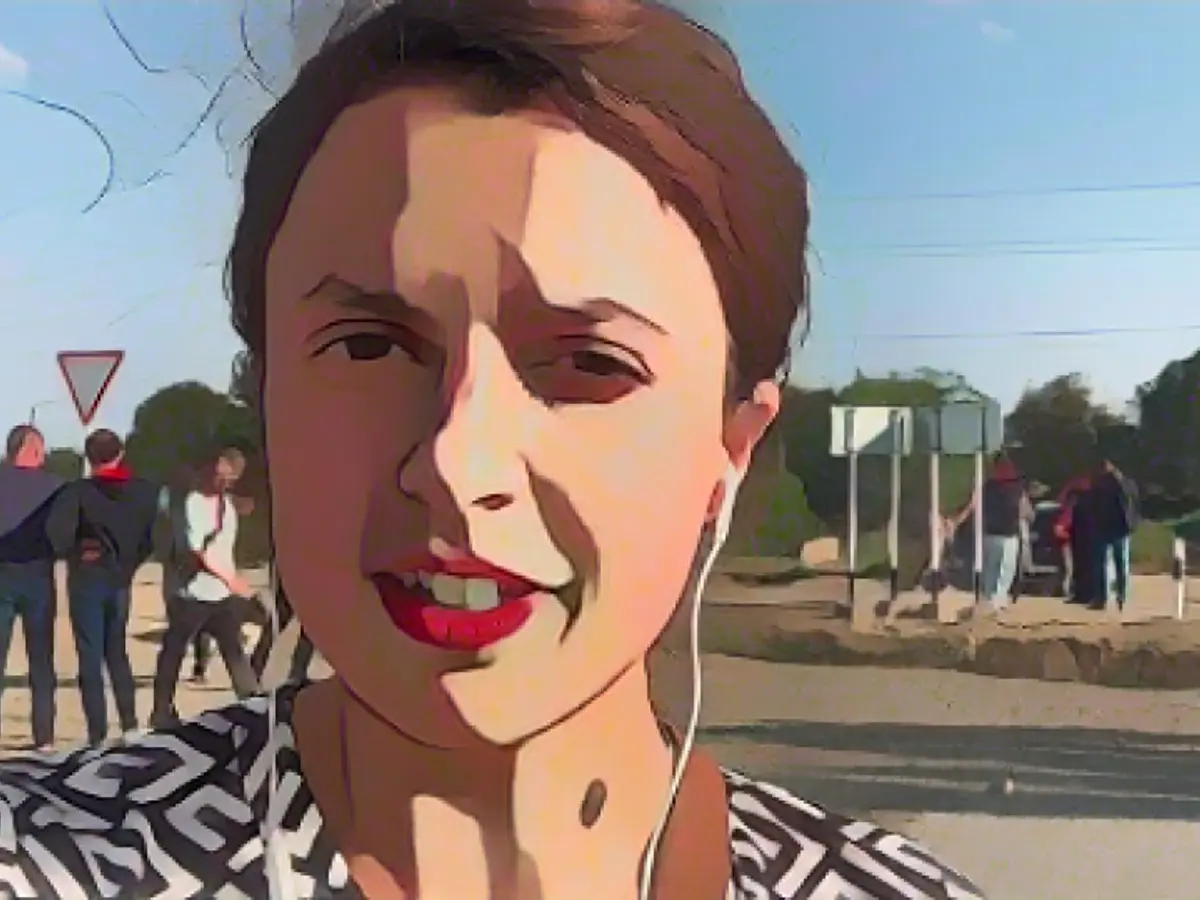Behind the story - Nagorno-Karabakh: On an odyssey through the Caucasus
Making-of - that's the name of our new format on stern.de. We want to give you a personal look behind the scenes, tell you about our everyday journalistic life, what we experience during research and what moves us in the editorial office. We are starting with a short series in which we look back on our moments in 2023.
The hills between Armenia and Azerbaijan are quiet in the morning. The winding road towards the enclave of Nagorno-Karabakh is empty. Only a few shepherds ride horses across the fields. "It may take a while," says one of the villagers, who overhears journalists waiting for people to cross the border.
Azerbaijan had previously cut off Armenian-inhabited Nagorno-Karabakh from the outside world for weeks, leaving the inhabitants to starve. As I stand at the Lachin Corridor in the morning, the only road connecting Armenia with the region, there is nothing to suggest that people will be crossing the border that day. The Red Cross has set up tents to take care of the people as soon as they arrive, but the staff don't know when this will happen.
Rollercoaster ride through the Caucasus
Traveling with me is an Armenian journalist, who also translates the conversations, and a driver. We wait for almost two hours. Then we get in the car back to the capital Yerevan. The road leads through the Caucasus, up and down for hours, like a rollercoaster. We stop several times and change seats to settle our stomachs. The driver had had his wisdom teeth extracted just two days earlier - he jokes about it, but the wild ride is getting to him. Meanwhile, the Armenian journalist tries to find out more about the situation from his contacts in the capital and in Nagorno-Karabakh. He makes phone calls, writes non-stop and at some point says: "It could still happen today."
A good friend of his in Nagorno-Karabakh, he says, has heard of buses being allowed to cross the border on the same day. The information is not confirmed. Nobody knows anything for sure. We pull over. Should we continue to the capital? Or turn around? If the border remains closed, a whole day will be lost during which I could interview other people. Border or capital?
If the people actually come over, we would be among the first media on the ground to describe how they are feeling. What they have experienced and feel. Without days in between, when memories fade or families are scattered across the country.
So: the border.
Where border officials yawned hours ago, tense relatives now stand
We rush back along the rollercoaster road even faster than before, the journalist calls his friend in Nagorno-Karabakh and reaches him between broken phone and internet connections. "They're coming," he says. "The buses are leaving."

With screeching tires, we stop at the border, which had been quiet just a few hours before. Now family members of the people in Nagorno-Karabakh are standing next to the border guards in uniform. They want to pick up their relatives, press their phones to their ears and keep dialing numbers. Some tell us how eagerly they have been waiting for this moment for weeks and had almost stopped expecting it. And then they arrive: one ambulance after another chases down the ridge from Nagorno-Karabakh, carrying the sick and weakened.
Later, cars arrive in which the displaced people have packed their lives: Cuddly toys, some clothes, photo albums. The people tell us with petrified faces: We don't know if we will ever see our homeland again.
Read also:
- Year of climate records: extreme is the new normal
- Precautionary arrests show Islamist terror threat
- UN vote urges Israel to ceasefire
- SPD rules out budget resolution before the end of the year
The Red Cross has been prepared to provide aid in Nagorno-Karabakh, a region located in the mountainous Karabakh, as Azerbaijan had previously blockaded it, causing its inhabitants to face food shortages. Our journey through the Caucasus, led by an Armenian journalist, involved a rollercoaster-like drive through the mountainous terrain, as we awaited news about the possible opening of the Lachin Corridor, the only road connecting Armenia with Nagorno-Karabakh, which is partially controlled by Azerbaijan.
During our wait, we received information that buses might be allowed to cross the border that day, leading us to race back to the Lachin Corridor. Upon arrival, we found tense relatives standing by the border, desperate to reconnect with their loved ones who had been trapped in Nagorno-Karabakh for weeks.
As buses carrying the sick and weakened began to descend the mountain, followed by cars filled with displaced individuals' belongings, their stories of fear and uncertainty about their homeland resonated among us. This unfolding situation was a stark reminder of the ongoing complexities associated with the Nagorno-Karabakh conflict.
Source: www.stern.de








